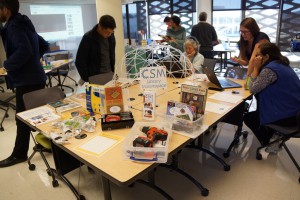Most people, at the beginning of their careers, set goals for the future. This could be a series of promotions, working towards a specific company or even starting your own business. The reality is you probably can’t achieve those goals by simply showing up and working the daily 9-5 grind. You’ll need to put in a little extra effort to make them a reality.
Here are 3 ways you can invest in your career to ensure future development:
Take on more projects. There are many benefits to taking on extra work. First, it will impress your superiors. Taking on extra projects will demonstrate your commitment to the field and to the company. Second, it will give you more experience. More work means you are spending more time developing your skills and improving your professional potential. Additionally, consider freelance work, if possible, to gain both experience and new contacts.
Seek out development opportunities. This can come in many forms including networking events, conferences relating to your field or internal training programs offered by your company. You can take courses that improve your professional development. Learn HTML to increase your marketable abilities or take online courses like the ones offered by Next Step Academy. Anything that can expand your knowledge and give you an edge in the field.
Request feedback. While initially asking for feedback can be uncomfortable, it can be one of the best ways to improve and invest in your professional development. Ask your boss how they think you are doing in your current position. Ask about your strengths and possible shortcomings. You may also want to inform them of your goals and ask what it would take for you to achieve them.
There are plenty of ways to develop your professional potential. Learn more with Next Step Academy’s course “Realizing Your Professional Potential“!








